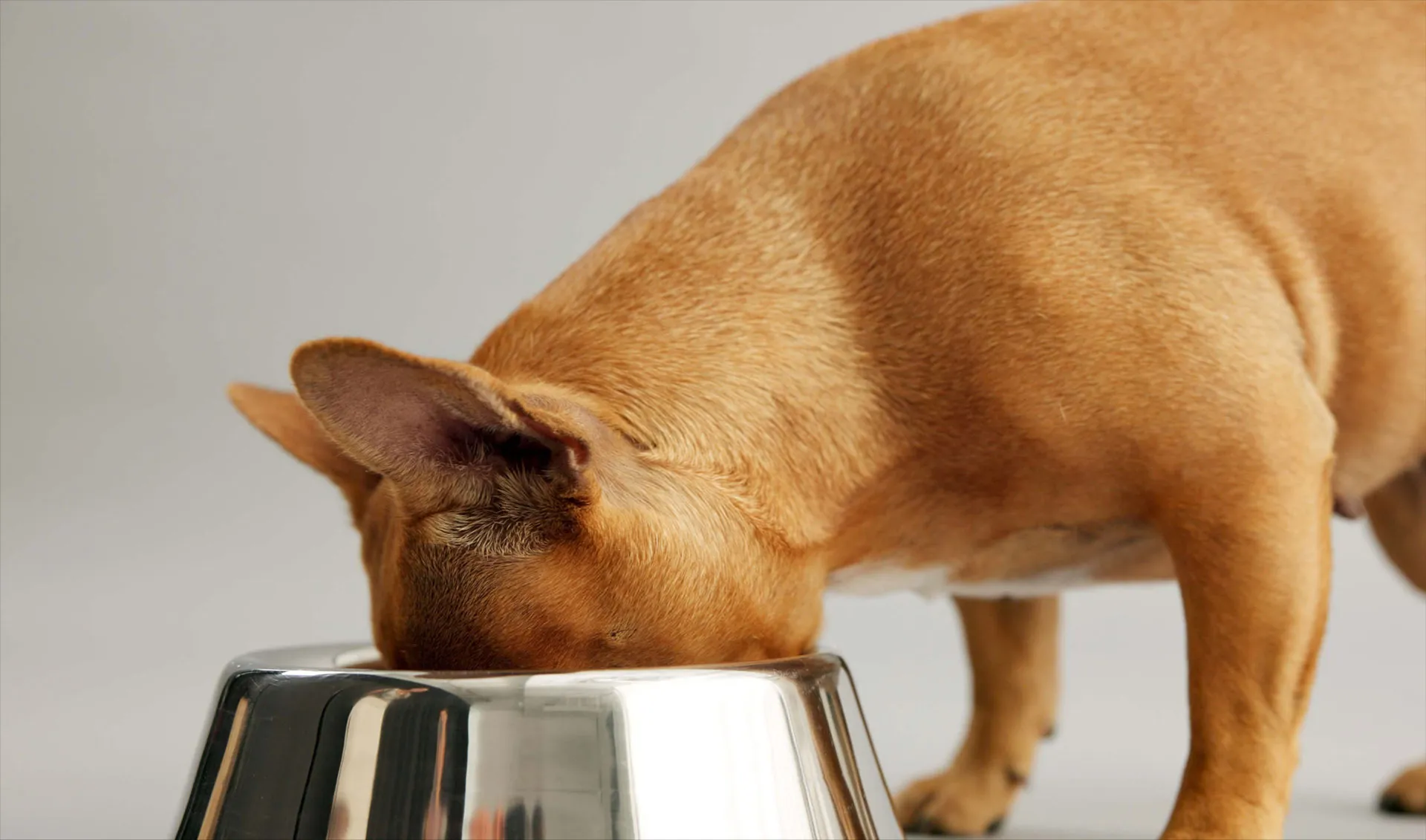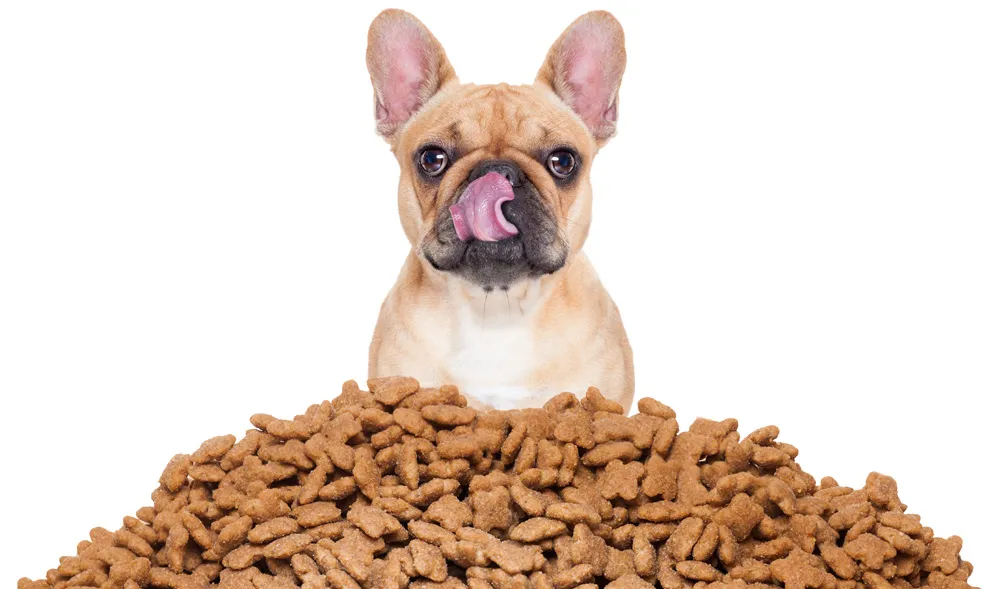French Bulldogs, with their charming bat-like ears and compact builds, have unique dietary needs that demand careful attention. Choosing the best dog food for French Bulldogs can transform your pup’s health, tackling common issues like sensitive stomachs, allergies, and gas. As a brachycephalic breed prone to skin problems and digestive woes, Frenchies thrive on high-protein, limited-ingredient formulas rich in omega fatty acids. Vet-recommended options like Hill’s Science Diet Sensitive Stomach & Skin and Royal Canin breed-specific kibble stand out for their digestibility and targeted nutrition.
In this guide, we’ll cut through the confusion of grain-free vs. raw diets, commercial brands, and homemade meals. Backed by insights from the American Kennel Club (AKC) and veterinary nutrition studies, you’ll learn essential ingredients, life-stage feeding, and top picks to keep your Frenchie energetic and itch-free. For safe treats beyond kibble, check our guide on what human food can bulldogs eat.
Unique Nutritional Needs of French Bulldogs
French Bulldogs aren’t just adorable—they’re prone to allergies, obesity, and joint issues like IVDD. A balanced diet supports their short snouts, sensitive digestion, and skin health. Key macros include:
- Proteins (first ingredient): Meat or fish sources like turkey, lamb, or salmon for muscle maintenance.
- Fats (10-15%): Omega-rich salmon oil for coat shine and inflammation reduction.
- Carbs: Digestible options like sweet potatoes for sustained energy, avoiding fillers.
 Brown French Bulldog eating from stainless steel bowl
Brown French Bulldog eating from stainless steel bowl
Prebiotics, probiotics, and antioxidants from blueberries or cranberries boost gut health and immunity. Always prioritize AAFCO-approved foods with clear labels—no vague “meat by-products” or artificial additives like BHA.
Ingredients to Seek and Avoid
Opt for limited-ingredient diets (LID) to minimize allergens. Top ingredients:
| Beneficial | Why? |
|---|---|
| Oily fish/turkey/lamb | High-quality protein |
| Salmon oil | Omega-3s for skin |
| Sweet potatoes | Slow-release energy |
| Probiotics | Digestion support |
Steer clear of common culprits:
| Harmful Ingredients | Risks |
|---|---|
| Chicken/beef/dairy | Allergies, itching |
| Corn/wheat/soy | Digestive upset |
| Artificial colors/preservatives | No nutritional value |
A UC Davis study found 95% of homemade recipes lack key nutrients—stick to vet-formulated unless consulting a nutritionist. For a full rundown, see our list of what dogs can t have.
Feeding by Life Stage
Tailor portions to prevent obesity, a major Frenchie risk.
Puppy (8 Weeks-6 Months)
Calorie-dense, small kibble soaked in water. 1.5 cups daily in 3 meals, rich in calcium/phosphorus.
 French Bulldog puppy feeding guide
French Bulldog puppy feeding guide
Adult (1-10 Years)
1-2.5 cups in 1-2 meals. Moderate protein/fat to avoid joint strain.
 Adult French Bulldog feeding guide
Adult French Bulldog feeding guide
Senior (10+ Years)
1-1.5 cups split twice daily. Joint supplements like glucosamine.
 French Bulldog senior suggested feeding guide
French Bulldog senior suggested feeding guide
Use slow feeders to reduce gulping and gas.
Top Vet-Recommended Foods
| Brand/Product | Best For | Key Benefits | Price |
|---|---|---|---|
| Hill’s Science Diet Sensitive Stomach & Skin | Digestion | Highly digestible, omega-rich | $$ |
| Royal Canin French Bulldog Adult | Breed-Specific | Tailored kibble shape | $$ |
| Natural Balance L.I.D. | Allergies | Single protein source | $$ |
| Ollie Fresh | Custom | Human-grade, no fillers | $$$ |
| Farmina N&D Ancestral Grain | Active Dogs | High protein, quality grains | $$$ |
For raw beginners, explore raw dog food recipes for beginners.
Best for Sensitive Stomachs and Allergies
Sensitive Stomach: Elimination diets via vet. Top picks:
| Rank | Brand | Why? |
|---|---|---|
| 1 | Hill’s Science Diet | Super digestible |
| 2 | Purina Pro Plan Salmon & Rice | Affordable, balanced |
| 3 | Nulo Freestyle Turkey/Salmon | Clean LID |
 Dog with sensitive stomach illustration
Dog with sensitive stomach illustration
Allergies: Common triggers like beef/chicken cause itching, diarrhea. Hydrolyzed proteins shine.
| Allergen | Symptoms |
|---|---|
| Beef | Skin irritation |
| Chicken | Ear infections |
| Dairy | Gas, vomiting |
Recommendations: Hill’s z/d, Royal Canin Selected Protein. Detailed dos/don’ts in what dogs can and can not eat.
Gassy Frenchies? Probiotics like FortiFlora plus LID foods. Wet options: Stella & Chewy’s Turkey Stew.
Kibble, Wet, and Raw Options
Best Kibble:
- Royal Canin French Bulldog: Jaw-friendly shape.
- Hill’s Prescription: Allergy control.
- Farmina N&D: Premium protein.
 French Bulldog in front of dry dog food pile
French Bulldog in front of dry dog food pile
Raw: Stella & Chewy’s freeze-dried for ease, but vet-approved only—balances allergies and weight.
Homemade pros: Allergen control. Cons: Nutrient gaps (84% deficient per studies). Commercial wins for convenience.
Transition slowly over 7-10 days. Monitor stool, coat, energy.
For accidental indulgences, know what to do if dog eats grass seed.
7 Tips for Choosing the Best Food
- Prioritize named proteins, no by-products.
- Chicken/grain-free if allergic.
- Affordable long-term.
- Small kibble for brachy jaws.
- Match flavor prefs.
- Check stool quality.
- Watch allergy signs: Itching, infections.
FAQ: Best Dog Food for French Bulldogs
Best for sensitive stomachs? Hill’s Science Diet—gentle on tummies.
Grain-free necessary? Only for true allergies; grains aid heart health.
Feeding frequency? Adults: 2x/day; puppies: 3x.
Allergy signs? Itching, diarrhea—try elimination diet.
Safe human foods? See table:
| Food | Safe? | Notes |
|---|---|---|
| Eggs | Yes | Cooked |
| Carrots | Yes | Teeth cleaner |
| Grapes | No | Toxic |
| Blueberries | Yes | Antioxidants |
Conclusion
The best dog food for French Bulldogs hinges on quality proteins, digestibility, and your pup’s needs—vet input is key for longevity. From Hill’s for stomachs to Royal Canin for breed perks, these picks promote shiny coats, firm stools, and happy vibes. Consult your vet, read labels, and transition mindfully. Share your Frenchie’s fave in comments—happy feeding!
References:
- AKC: French Bulldog Breed Guide (akc.org).
- UC Davis: Homemade Diet Analysis.
- Verlinden et al., Critical Reviews in Food Science (2007).
- AAFCO Pet Food Labels (aafco.org).
